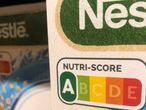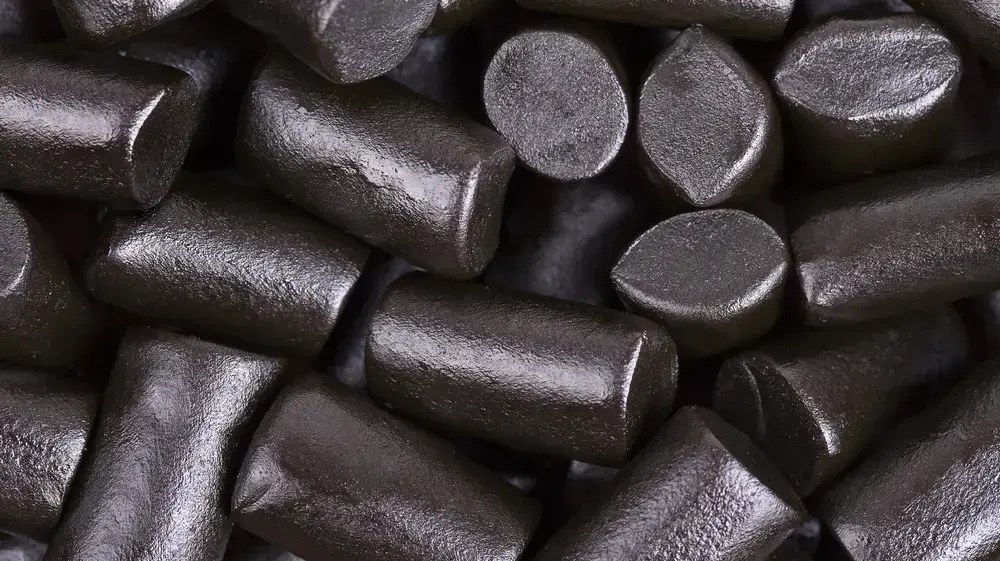White gum, many of which usually use the additive E-171.GEtty
The European Commission will propose to the Member States to ban titanium dioxide as a food additive (E-171). It is a substance that is widely used as a bleach in chewing gum, ice cream, dairy products, sauces, soups, broths and confectionery products, and which was already banned in France in 2020. The proposal comes hours after the European agency EFSA has updated its safety assessment of this additive, which according to the advisory body can no longer be considered safe. "The Commission and the countries, including Spain, are already working to agree on harmonized measures among all EU members without delay," explains a spokesman for the Ministry of Consumer Affairs. In any case,the Commission stresses that EFSA has not identified any urgent health problems with this substance, so the proposal will be discussed "in the coming weeks". Nutrition experts ask not to fall into alarmism, since there is no imminent risk to health if a product with this additive is consumed.
More information
Consumption continues with the controversial Nutri-Score, which gives the same note to olive oil and rapeseed oil
Consumption prepares a label to indicate which appliances and appliances are easier to repair
The Commission itself asked EFSA to reassess titanium dioxide in March 2020, something that the advisory body has done taking into account the thousands of studies that have been published since its previous evaluation, carried out in 2016. These analyzes collect new data and scientific tests on the nanoparticles contained in this additive, allowed for food use in Europe since 2009.
Maged Younes, Chairman of the EFSA Technical Commission on Food Additives and Flavors, notes in a note from the agency: “We have concluded that titanium dioxide can no longer be considered safe as a food additive. A key element in reaching this conclusion is that genotoxicity after consumption of titanium dioxide particles could not be ruled out. After ingestion, the absorption of titanium dioxide particles is low, but they can accumulate in the body ”. Genotoxicity refers to the ability of a chemical to damage DNA, the genetic material of cells. Since this can lead to carcinogenic effects, it is essential to evaluate the possible genotoxic effect of a substance to determine its safety.
A Commission spokesperson explains by email that, as EFSA has not identified any urgent health problems, an appropriate transition period will be discussed with the Member States to allow for the substitution of the substance. "The way forward will be discussed in the coming weeks with the Member States so that a measure is taken as soon as possible," he adds.
In the same sense they are expressed from the Ministry of Consumption. “Following the publication of this new EFSA opinion, the Commission and the Member States, with Spain represented by the Spanish Agency for Food Safety and Nutrition, are already working in a coordinated manner on the management of this identified risk to, without delay, agree harmonized measures among all EU countries ”, points out a spokesman for the department headed by Alberto Garzón.
Beatriz Robles, nutritionist and food technologist, explains that these types of reevaluations are common. "Additives are under continuous re-evaluation, both with respect to the available scientific evidence, which may change, and in terms of the exposure we have to these products. If an additive is used frequently we will be more exposed. That is why the authorizations of the European Union are different from those of the United States, because there are products that are consumed more in one place than in the other ”.
The food expert asks not to be alarmed by the opinion: “EFSA tries to guarantee maximum safety, which is why it re-evaluates this type of additives.
It happened with monosodium glutamate [E621], it was reevaluated, it was seen that we were more exposed, and the maximum authorized doses were reduced ”.
In addition, remember that the maximum authorized doses have very large safety margins: "If a dose of 100 has been seen to produce adverse effects, the authorized dose is one."
Banned in France since 2020
Miguel Ángel Lurueña, doctor in Food Science and Technology and author of
Que no te bundle con la comida
(Destino), highlights that this food additive has been under controversy for several years, especially since last year, when France banned it. "It is considered that it can carry risks such as altering the intestinal microbiota or flora, causing intestinal inflammation or increasing the risk of cancer and colon problems," he says.
What should someone who has products with this additive do?
The EFSA notes that although the evidence for general toxic effects is not conclusive, a safe level for the daily intake of titanium dioxide as a food additive cannot be established.
Lurueña points out that there is no need to be alarmed: “Unlike what happens when a food alert is launched —for example, for listeria or salmonella—, in this case we are not talking about an imminent risk to health.
We are only talking about the fact that the chances of suffering from certain pathologies increase due to prolonged use, but it is not something imminent or certain.
It is not worrisome ”.
The expert explains that in recent years several additives have been banned, such as E-125, E-225, E-462, while another, E-960, has been approved.
What are additives and why should they be limited?
Miguel Ángel Lurueña explains that additives are added to food or beverages to improve their production or preservation process and that they can be of many types: "of vegetable, animal, mineral, synthetic origin, of microorganisms ...". The important thing is not whether they are natural or artificial, but their composition. “Some are safe and others are not, so their use has to be more measured and restricted. For the innocuous there is no dose limit. For the others there are maximum doses allowed. And some have to be reevaluated to be more sure of their use ”. The expert points out, for example, that Brazil nuts have selenium, a mineral that the body needs, but that in large quantities is dangerous. "If we eat 100 grams of Brazil nuts, we exceed the recommended consumption dose." While,"Citric acid is naturally in an orange, but we can also obtain it in a laboratory, and in both cases its consumption is safe," he adds.






/cloudfront-eu-central-1.images.arcpublishing.com/prisa/ILLMSM3CL5EZTGR5TPAFNGGS6Y.jpg)